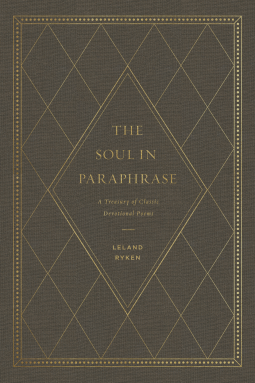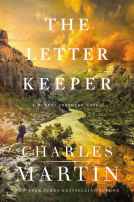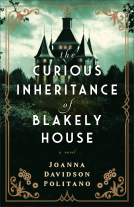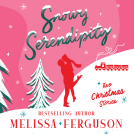
The Soul in Paraphrase
A Treasury of Classic Devotional Poems
by
This title was previously available on NetGalley and is now archived.
Send NetGalley books directly to your Kindle or Kindle app
1
To read on a Kindle or Kindle app, please add kindle@netgalley.com as an approved email address to receive files in your Amazon account. Click here for step-by-step instructions.
2
Also find your Kindle email address within your Amazon account, and enter it here.
Pub Date Oct 31 2018 | Archive Date Oct 05 2018
Talking about this book? Use #TheSoulInParaphrase #NetGalley. More hashtag tips!
Description
A literary expert introduces 90 of the best of the best in devotional poetry, providing commentary that helps readers understand and appreciate the literary beauty and the spiritual truths they contain.
A Note From the Publisher
PDF may not be compatible with all reading devices
Advance Praise
“Leland Ryken has performed a great service by gathering these poems into a volume that yields counsel, challenge, and comfort to Christians of all stripes. These poems will be faithful companions to every thoughtful believer.”
—Alan Jacobs, Distinguished Professor of Humanities, Honors College, Baylor University
“Leland Ryken has gifted us with a much-needed anthology that not only presents the finest devotional poetry in English, but provides incisive commentary that allows the reader to understand each poem’s various layers of meaning and to participate in its wrestling with God, faith, and the human condition.”
—Louis Markos, Professor of English and Scholar in Residence, Houston Baptist University; author, From Achilles to Christ and Literature: A Student’s Guide
“Leland Ryken’s The Soul in Paraphrase is a stunning collection of timeless devotional poems that—just like the Bible—rewards the patient, careful reader. Every Christian should add this volume to their library, enjoying it slowly and savoring its riches in the daily rhythms of devotional life.”
—Brett McCracken, Senior Editor, The Gospel Coalition; author, Uncomfortable: The Awkward and Essential Challenge of Christian Community
“This timeless treasury reads like a devotional on devotional poetry. With the fruits of a long career served in the love of God and of literature, Leland Ryken informs and illumines each poem’s contribution to the thoughtful Christian’s pursuit of beauty, grace, and truth. Perfect as a guide or a gift.”
—Carolyn Weber, Faculty Member, Brescia University College, Western University, London, Ontario; author, Surprised by Oxford and Holy Is the Day
“I have long desired a book just like this fine collection of poems. I am constantly seeking to encourage prospective pastors, teachers, and Christians in the church to read good poetry. Leland Ryken has compiled exactly what I need: a treasury of great devotional poems that I can regularly recommend to others. He includes many of my own favorites by Shakespeare, Donne, Herbert, Hopkins, and Eliot, so I was fascinated to read his valuable commentaries introducing those poems. He has also chosen less familiar works, making this a book I will return to again and again. Thank you for such an excellent work!”
—Jerram Barrs, Resident Scholar, The Francis Schaeffer Institute; Professor of Christian Studies and Contemporary Culture, Covenant Theological Seminary
“Leland Ryken is a leading literary scholar of our time, and in these pages offers a timeless collection that couldn’t be timelier. The Soul in Paraphrase presents masterful poems that nourish heart, mind, and soul, along with commentary that is learned, lucid, and inviting. This is a volume that will delight poetry enthusiasts and skeptics alike.”
—Karen Swallow Prior, author, On Reading Well: Finding the Good Life through Great Books
“Some of the most profound devotional exercises—perhaps second only to the reading of Scripture—come from reading and contemplating Christian poetry. But readers today are ill-equipped to do so, knowing poetry only as either greeting-card verse or undecipherable puzzles. In this collection, Leland Ryken, the dean of Christian literary scholars, gives back to contemporary Christians their rich literary heritage. First, he selects works of the highest aesthetic and spiritual quality; and, second, he offers brief commentary that unpacks each poem’s meaning, artistry, and theological depths. In showing how poetry is a ‘trap for meditation’ (as Denis de Rougemont called it), Ryken has given us a resource that will greatly enhance our Christian devotions.”
—Gene Edward Veith Jr., Professor of Literature Emeritus, Patrick Henry College
“For most modern people, poetry is hard to read and not immediately rewarding. And yet, it is precisely that difficulty and the contemplation that it requires that makes reading poetry such a valuable exercise in a world of distractions. Leland Ryken has produced a volume that will aid Christians, even those not well versed in poetry, in delighting in the rich history of devotional poetry.”
—O. Alan Noble, Assistant Professor of English, Oklahoma Baptist University; author, Disruptive Witness
Available Editions
| EDITION | Other Format |
| ISBN | 9781433558610 |
| PRICE | $34.99 (USD) |
Featured Reviews
 Conrade Y, Reviewer
Conrade Y, Reviewer
This is a book about poems. Not just any poem but classics that allows the soul great latitude to express the human soul. In a powerful foreword, Leland Ryken highlights some of the main features of "classic devotional poems." They are:
They take the religious life and experience as the subject;
They inform and influence the reader;
They make us think and reflect on the spiritual life;
They also connect us with both the common experience as humans as well as the spiritual experience as Christians;
Both form and content engage us;
There is beauty in both expression and experience;
They are multi-layered in quality which challenges us to keep unwrapping the gifts of poetry;
Despite poems being often seen as "timeless and universal," these selected poems are arranged in chronological order for our convenience. Pieces written in Old English are updated for our ease of understanding. They are not inspirational but devotional pieces. The former tends to benefit the self while the latter helps the reader to be mindful about honouring God and to grow toward being more like Christ. The pieces contrast with literature of unbelief that tend to deny the existence of God. The works in this book not only affirms God's Presence, they help us develop a fuller understanding of faith, worship, prayer, belief, humanity in Christ. Apart from that, the anthology not only deals with the content but also the form in which the content is communicated. This presents the reader an opportunity to enjoy the pieces in more ways than one. There is also the skills behind the literary art which exudes beauty for us to appreciate. More importantly, the beauty that we see more of God helps us also to see the beauty FROM the eyes of God. The hymns, poems, prayers are categorized broadly as follows:
Note the title, the author, and the period of writing
The poem is listed and updated for our reading
Some notes are included for explanation of the texts
Commentary by Ryken
Last nine chapters are brief "pairs of poems" based on a common theme
My Thoughts
First, it is crucial to take time to read each chapter. I must admit it takes some effort to move from prose to poetry. If we attempt to read it like an essay, we may be able to finish the brief pages in quick time but miss the literary aesthetics. Poem is a genre that requires frequent pauses to take in the meaning and insights of each word. The focus should not be to finish the book as fast as possible but to savour each word and sentence like sipping an expensive glass of wine. We smell the form and see the words. We examine the words and ponder about the subject. The "Sunset on Calvary" comprises just four sentences, yet, Lyken is able to cast lots of light on the simple yet profound words. It reminds me that there is beauty in simplicity. Simplicity is not just the economy of words, but the central focus to see a big idea from as many angles as possible.
Second, for starters, it might be helpful to read the poem quickly at first and re-read them after going through the commentary. With the author guiding the reader with key observations, background information, overview of the movement of thoughts, and so on, hopefully the reader can learn to read poetry with a better informed mind. It is an educational journey for me as well to be able to catch the insights of Lyken, an English Professor and how he reads the poem. I find the background information particularly helpful because it helps me connect the poem with the poet. For instance, many of William Shakespeare's works are composed by a deeply contemplative person. Shakespeare ponders upon his own mortality expresses it through Sonnet 73. His understanding of true love leads to the marriage sonnet 116. "Love alters not with his brief hours and weeks,
But bears it out even to the edge of doom" is a re-statement of the common marriage vow: "Till death do us part."
Finally, I think one of the key things I take away is that I must replace the notion of right/wrong and replace it with appreciating what the authors try to say. In other words, seeking to know the 'what' of expression is the most important first step in reading the anthology of poems. Just like the way we do inductive bible studies, the first step is Observation before Interpretation. This interplay of artistry and scientific analysis is what makes reading poetry both refreshing and intriguing. It is a way which we devote our attention to God through the words that help us link our humanity with God's divinity.
Leland Ryken has served as Professor of English at Wheaton College for nearly 50 years. He has authored over 50 books and served as literary stylist for the English Standard Version.
Rating: 4.5 stars of 5.
conrade
This book has been provided courtesy of Crossway Publishers and NetGalley without requiring a positive review. All opinions offered above are mine unless otherwise stated or implied.
 Doreen S, Reviewer
Doreen S, Reviewer
At the outset, Ryken makes clear that there are several ways to define devotional poems. Some may be focused on spiritual topics, others may be devotional because of how they affect the reader. “If a poem prompts us to think about God and spiritual truth, if it deepens our spiritual insight and experience, and if it awakens a greater love of God and desire to be like him, it has served a devotional purpose” (location 127).
For each poem included, he has a section that explains or defines certain words and then he explains what the poem means. Sometimes there is a little poetry lesson on cadence or some other poetical feature. I appreciated the wide range of poetry included. Besides clearly spiritual ones, he included some sonnets by Shakespeare and poems by John Donne that I wouldn’t have thought to include in a devotional poem book but that make sense to me there now.
I loved this sentence from a 14th century anonymous poet. “A child is born in the midst of man, and in that child there was no sin; that child is God, that child is man, and in that child our life began” (location 342).
I enjoyed reading a poem or two in the morning with my devotions. I often struggle to understand poetry so I appreciated the notes included. This book wouldn’t appeal to everyone. But if you’re like me and think you’d enjoy it if you just understood it, give this book a try. I’d recommend it.
Thank you to Crossway for providing me with a free e-copy of this book. I was not required to leave a positive review. All opinions are my own.


















